- 5443
- 0
Sharing Ideas and Updates on LPG in Nigeria and related information to enable effective collaboration within the LPG Value Chain
THE NLNG IMPACT ON LPG SUPPLY NATIONWIDE

Gas remains the epicenter of the energy crisis and rising inflation around the world, with all eyes on gas-producing countries to increase supply and secure long-term contracts to ensure not only accessibility but reliability. For gas producing nations like Nigeria, this is an opportunity to expand market access and maximize opportunities in the upstream gas production industry. With a national policy encouraging liquefied petroleum gas (LPG) consumption, many Nigerians have recently embraced the use of liquefied petroleum gas, known as cooking gas, which is encouraged for its cooking speed and low health risk. However, a continued rise in the cost of cooking gas now threatens to force the average Nigerian back to charcoal and firewood, with all their known health risks.
In fact, the price of gas has skyrocketed since the beginning of 2022, exceeding the reach of the populace. To address the cost challenge, NLNG committed last year to supply 100 percent of its total LPG (butane and propane) production to the domestic market despite market and feed gas challenges. NLNG Managing Director/CEO Dr. Philip Mshelbila at a recent forum, listed the challenges that have slowed LPG use in the country, including the inability to fully accommodate NLNG's propane production, leading to its low propane export to avoid tanking situations at its plant.
His opinion goes thus: “When we made this commitment last year, the intent was that every molecule of butane and propane that we produce at our facility would go to the domestic market and we have done everything we can to achieve that since since January 2022 have successfully achieved 100% supply of our butane production “We have not been able to achieve 100% supply with propane, not because we don't want to, but because the market capacity to accommodate propane simply isn't there. Our intention is that all butane and propane that we produce goes to the domestic market, whether the propane is used to blend with butane as a cooking gas, as an auto gas, or in the power generation industry.” In fact, Minister of State for Petroleum Resources Timipre Sylva said he has further reiterated Nigeria's readiness and positioning to become a key gas supplier to Europe after the energy crisis in the world caused by the ongoing conflict between Russia and Ukraine.
NLNG and Its Achievements
In fact, NLNG said it has shipped more than 2.4 million tons of liquefied petroleum gas (LPG), popularly known as cooking gas, to the domestic market over the past 15 years. The company said the continued supply of LPG under the NLNG Domestic LPG (DLPG) program has seen a steady increase in annual consumption in the domestic market from a market that was under 50,000 tons per year in 2007 to over a million tons per year spurred in 2021 it keeps growing. NLNG said it currently supplies about 80% of local household cooking gas and expects to provide 100% of its LPG supply for domestic use, which will be a major milestone on the domestic gas supply journey.
Incorporated as a limited company on May 17, 1989, NLNG was formed to harness Nigeria's vast natural gas resources and produce liquefied natural gas (LNG) and liquid natural gas (LNG) for export. Liquefied petroleum gas (LPG), popularly known as cooking gas, is a very clean, versatile and environmentally friendly fuel, an essential product for life and habitation, a convenient portable energy source that is easy to transport and store. It is produced from crude oil refining and gas extraction with various uses ranging from heating purposes, the manufacture of aerosol propellants, inputs to the petrochemical industry and as a refrigerant.
The federal government policy initiated in 2005 that led to the 2007 intervention has contributed to the sustainability of supply in the current industry by opening and expanding the internal LPG market that has seen the transformation from 2004 to the present. Manufacturers (NLNG in particular) have provided a certain amount of LPG for the domestic market, from 2004 till date. 15 years after NLNG's intervention in the LPG supply of the national market under the DLPG program, the program has created more than 250,000 jobs in the industry and provided the necessary basis for a growth of more than 1,000%.
Not only has it helped reduce the use of dirty fuel sources for cooking, but it has also fueled industry growth by ensuring the supply, availability and affordability of LPG and developing a value network for a sustainable ecosystem in Nigeria. The company gave an overview of its achievements over the past 15 years, saying that in 2003 Nigeria produced large amounts of LPG, but this amount was exported, while domestic consumption came mainly from imports. LPG export production was substantial, but nothing was reserved for the domestic market due to the impossibility of accommodating small vessels at NLNG cargo terminals and other export points.
The federal government established a Presidential Steering Committee on LPG (chaired by Special Assistant to the President for Petroleum Affairs) Alhaji Ja'afaru Parki, which conducted studies jointly with the World Bank. In 2004, the federal government, through the Committee, consciously and intentionally took positive actions and policy frameworks to change the existing conditions, ordering LPG manufacturers to include lighter ships to supply the domestic market.
Specifically, the LPG study commissioned by NLNG in 2016 predicts that the domestic LPG industry will grow by up to three million tons per year by 2026, subject to the implementation of various intervention programs throughout the value chain. NLNG intensified its government advocacy campaign to facilitate the implementation of specific industry and policy initiatives required to achieve this projected market growth and development. Regardless of the milestones in the LPG industry there is still a high demand for cooking gas in the country that exceeds the supply, which has led to a sharp increase in LPG prices. To mitigate this price increase, NLNG said that the LPG supply chain needs to be improved, with more manufacturers increasing the LPG volume for the domestic market; encourage private contractors to participate in the Natural Gas Processing Implementation of Flare Out Program (NGFCP); ensuring oil refineries are operational and reducing/exempting import duties and levies on LPG equipment such as equipment, chemicals and others.
The Company has also applied to the Central Bank of Nigeria to guarantee the disbursement of loan facilities from a dedicated gas fund (National Gas Expansion Program Framework) to competent investors in the LPG value chain. For his part, Nigerian Liquefied Petroleum Gas Marketers Association (NALPGAM) President Oladapo Olatunbosun said NLNG remains committed to meeting domestic demand. Olatunbosun further claimed that NLNG had assured the association that it would continue to produce LPG based on the feed gas it received from its gas suppliers as production is expected to pick up again after the tide recedes. The NALPGAM President also warned intermediaries (terminal owners/contractors) in the LPG value chain not to take advantage of market hysteria.
SOURCE
Femi Adekoya: The Guardian.
Image Source: Punch Newspaper/NLNG logo





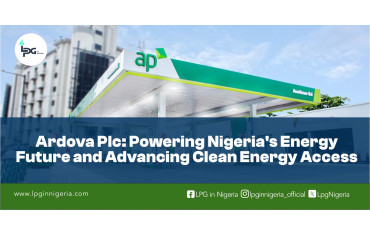
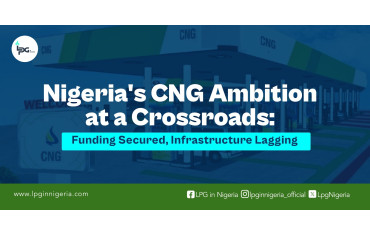
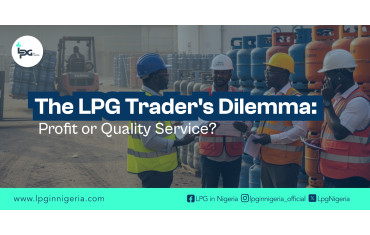

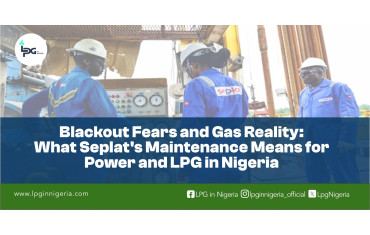
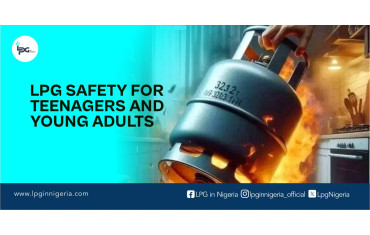





0 Comment.